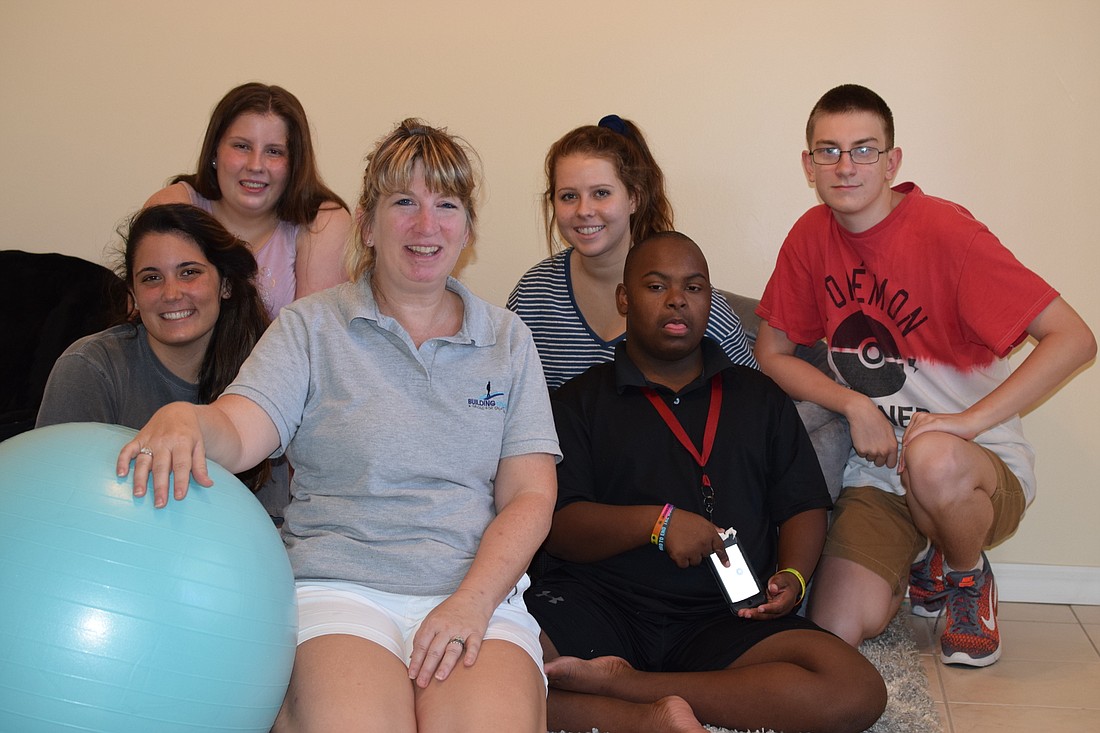- October 23, 2024
-
-
Loading

Loading

For teens and adults with special needs, high school might not offer adequate preparation for the social demands and skills required of an independent lifestyle.
Recognizing this fact, Winter Garden resident Patty Myers founded a nonprofit named Building Pathways. The nonprofit’s mission is to provide individuals with special needs hands-on training that can get them ready for life on their own in the future.
Myers, the director of Building Pathways and the former principal of First Hope – a program she initiated at The First Academy in Orlando that also helps children with special needs – just launched the nonprofit in June.
But, being the mother of a 16-year-old with autism, it had been her long-held goal to create a valuable resource in the West Orange area for individuals who might need that extra push and guidance to make it on their own.
“My son is my inspiration,” Myers said. “He’s about to be 17, but he has three years left of high school. And right now, he’s not able to drive, but we’re working on it. So that concern kind of spread to other kids, too, who I know are in the same boat. The funding generally stops once they pass 22, and there’s not much help out there.
“Few programs say, ‘Oh, let me take your son or daughter and help them with these skills,’” she said. “So this kind of program was so needed. Especially out west here.”
According to the Centers for Disease Control and Prevention findings from 2006 to 2008, about one in 59 children are diagnosed with autism and one in six U.S. children had a developmental disability. The thought of what happens to all those children after they graduate high school and leave home is what motivated Myers to create Building Pathways.
“Kids with disabilities can go to school until they’re 22,” she said. “A lot of parents have them go until they’re 22 because they don’t have another option. So programs like mine could be another option. They could leave school at 18 and then do this instead. And this could be that transitional stage for them that really helps them if they ever need to live on their own.
“That’s the goal: having them live on their own and get a great job,” Myers said. “There are a lot of companies willing to give jobs to kids with disabilities. And if a kid likes to bag, and that’s his thing, I'm all for it. But I want to find them jobs that they will be happy with.”
To help them prepare for a job and future independence, Myers runs both a summer camp and day program alongside her assistant director, Jennifer Pinckney. The programs mostly focus on teaching the participants the etiquette and skills they might need in a work environment or social setting.
“That’s our whole goal here,” she said. “To get them to be independent and have them not need us anymore. A lot of adults with disabilities who are in their 40s and 50s still live with their elderly parents.”
On Mondays, the children decide on a meal to cook on Thursday for their group lunch and create a grocery list. Myers then takes them to Publix to purchase the needed ingredients. While grocery shopping, Myers guides them on how to choose what to buy according to preference and price.
“We also try to help them figure out what are good bargains,” she said. “You know, we tell them don’t just pick any cheese, ask yourself whether that’s the cheese you want and compare the price to what’s on sale. You know, all those little things that aren’t really taught to any of us because we just figure it out.”
On Tuesdays and Wednesdays, Myers takes the children to a movie theater. Going to the movies is still a teaching opportunity, she said, as theater settings call for certain behaviors.
“There are social skills involved in going to the movies,” she said. “There’s just so much that needs to be taught that we don’t even think about. If you go to a movie theater, you might have to wait in line or ask a question before buying your tickets, so you teach them that that money exchange has to happen first and then you find a seat. There are so many things that we take for granted that we just do without thinking but, generally speaking, some of them don’t pick up on social cues.”
On Fridays, Myers usually takes them on a field trip, such as SeaWorld, Gatorland or a bowling alley. And every week focuses on a different virtue that she emphasizes and discusses in daily devotionals with the children, such as kindness, patience or self-control.
“I’ve always been the type who likes to serve and help via psychology,” said Myers, who has a bachelor’s degree in psychology and is board-certified as an assistant behavioral analyst. “But when my son was diagnosed, I think that just took it to another level. I’ve noticed that people don’t see their value sometimes. They look at them and become fearful … but they’re trying to communicate with us, and sometimes they’re unable to express themselves as we do. But a lot of people know me in the disability community, and they know I don’t give up.”